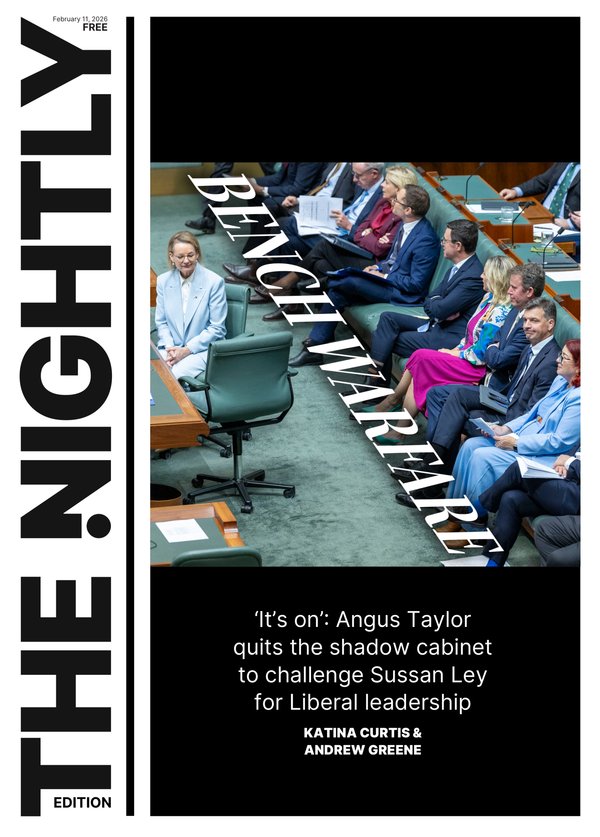Nick Bruining: Billion-dollar hit to super fund AustralianSuper reignites valuation concerns
A billion-dollar hit to super fund behemoth AustralianSuper has reignited concerns about the valuations and investment returns of super funds investing members’ money in unlisted assets.

A billion-dollar hit to super fund behemoth AustralianSuper has reignited concerns about the valuations and investment returns of super funds investing members’ money in unlisted assets.
AustralianSuper has confirmed the fund has written down the value of an investment in a Utah-based technology company to the tune of $1.1 billion. The investment was made after teaming up with private equity specialist Vista Equity Partners.
The investment in Pluralsight fell victim to a decline in profitability and concerns over future growth.
Sign up to The Nightly's newsletters.
Get the first look at the digital newspaper, curated daily stories and breaking headlines delivered to your inbox.
By continuing you agree to our Terms and Privacy Policy.Pluralsight is an online training and education platform with an emphasis on web-related skills.
“The combination of deteriorating sales revenue from US corporates due to cost-cutting and the increase in debt service costs due to higher interest rates led to a sharp deterioration in the company’s trading performance triggering a restructure,” Mark Hargraves, AustralianSuper’s head of international and private equity Mark Hargraves said.
These private equity arrangements fall under the category of unlisted assets, which also includes direct investment into property and infrastructure investments.
Unlisted assets are those assets that are not readily traded on open markets like stock exchanges.
Critics have argued some super funds’ spectacular historical returns may have been inflated by favourable valuations of unlisted assets. Unlisted assets are popular with large super funds, including many industry funds.
The issue was highlighted last year, when property management giant Dexus sold a 26-storey office tower for $393 million — more than 17 per cent less than its book valuation.
Professor Lee Smales, head of accounting and finance at the University of Western Australia, said there were significant long-term benefits in using unlisted assets.
“They offer a potential for higher returns because they can provide access to long-term investments that might not be available to share market investors. They can also access startup businesses which have the potential for rapid growth,” Professor Smales said.
According to its website, as of June 30, the AustralianSuper balanced option had almost a quarter of members’ money invested in areas which might be classified as “unlisted”.
But Professor Smales said there was also a downside.
“The two main disadvantages are a lack of transparency and illiquidity compared to listed assets. Since unlisted assets are unique, they can be difficult to value and hard to sell if cash is needed,” he said.
The issue is that the valuations of unlisted assets are built into the daily unit prices of super funds.
When members invest or withdraw money from super, units are bought or sold at the daily unit price. The risk is that the valuations, and therefore the unit prices, do not accurately reflect the underlying asset values.
The Australian Prudential Regulating Authority oversees the operation of large super funds and has flagged the valuation of unlisted assets as an issue.
In a letter to super fund trustees in June, APRA said: “There is room for improvement in areas including use of revaluation triggers for ongoing and interim valuations. This issue was identified as having the most room for improvement.”
It is also a reason why many financial planners are reluctant to use funds heavily exposed to unlisted assets.
Financial planner Chris Young said transparency and valuation issues became apparent in periods of high volatility.
“It’s a real concern when you see some of the daily unit prices swinging wildly. That’s one of the huge benefits of funds using listed assets,” Mr Young said.
“Good or bad, you know exactly where you stand real-time, and there’s a reduced chance of receiving a very nasty surprise if there’s a negative revaluation down the track.”
Nick Bruining is an independent financial adviser and a member of the Certified Independent Financial Advisers Association
Originally published on The Nightly

